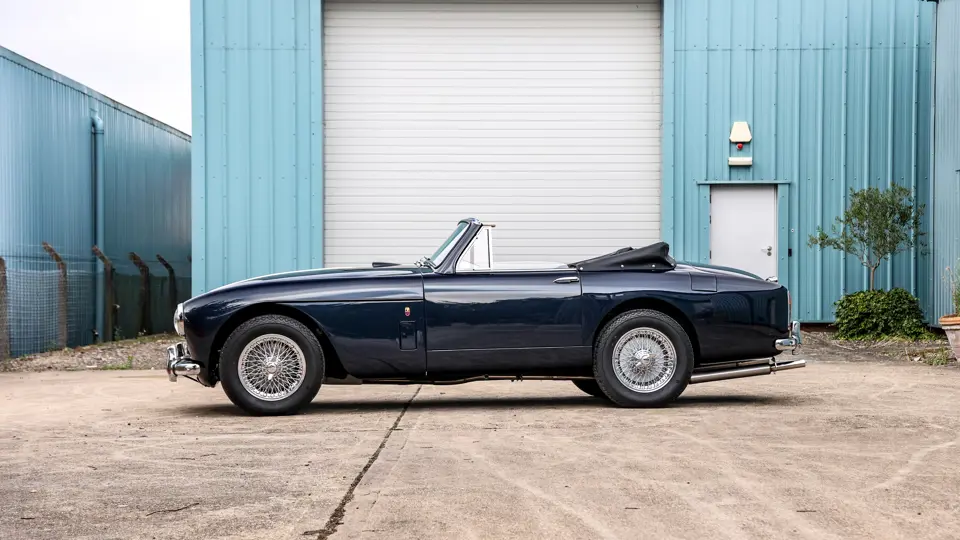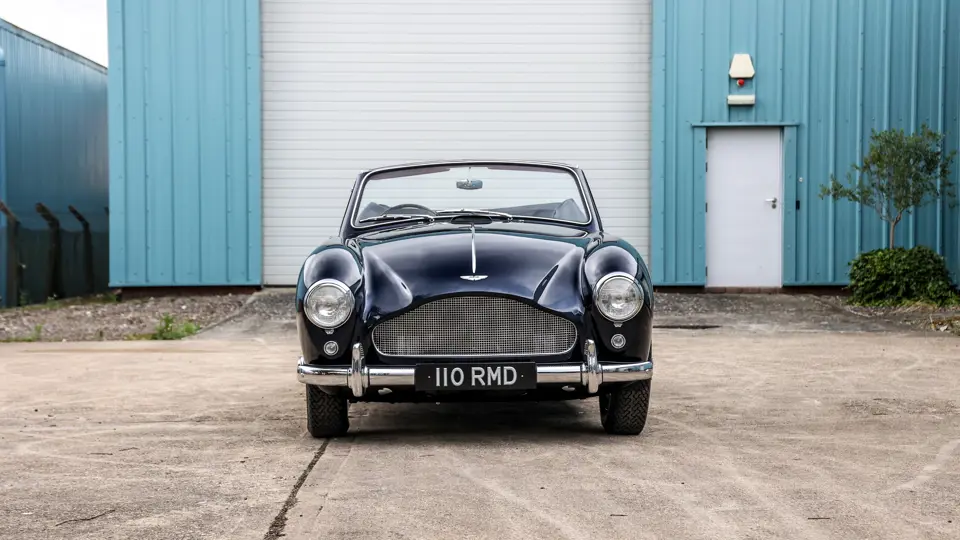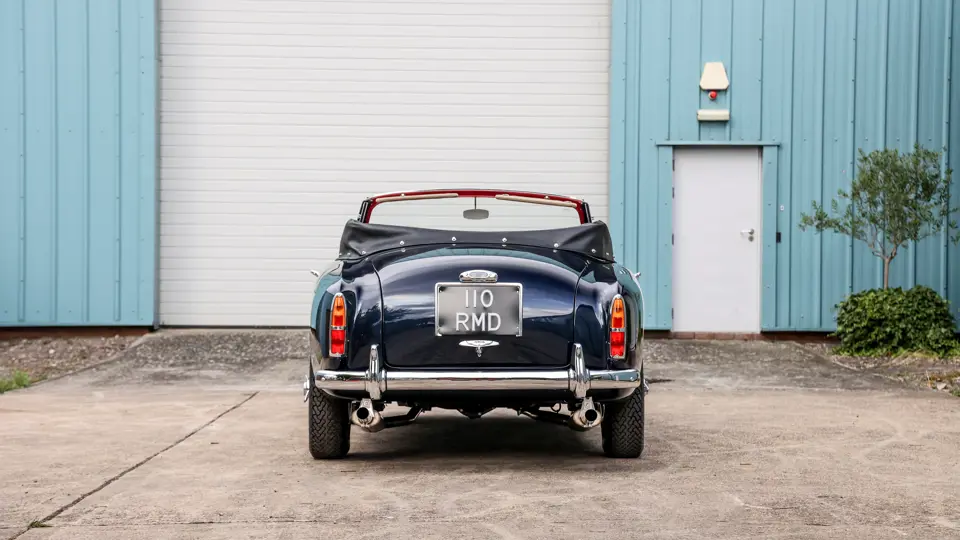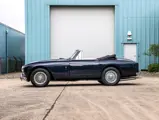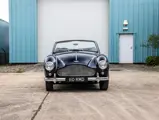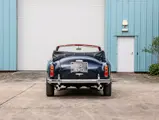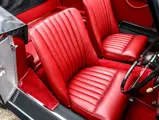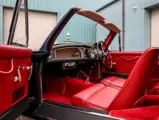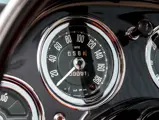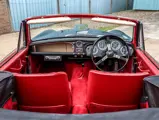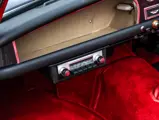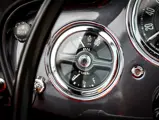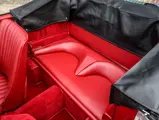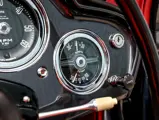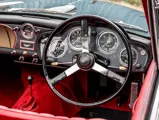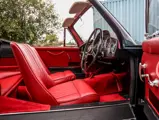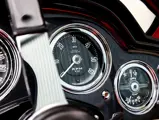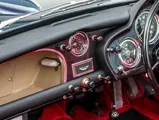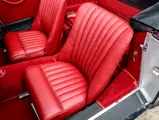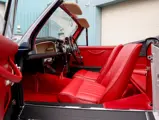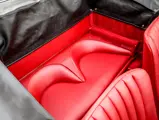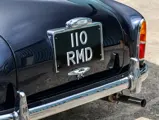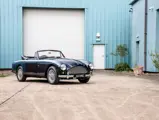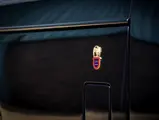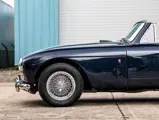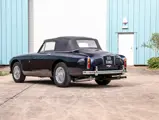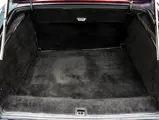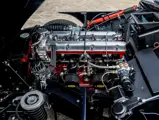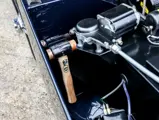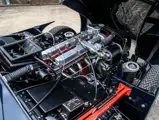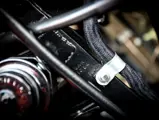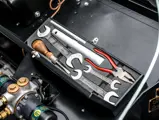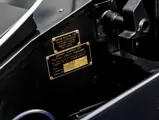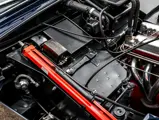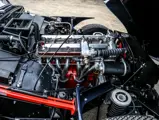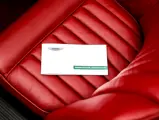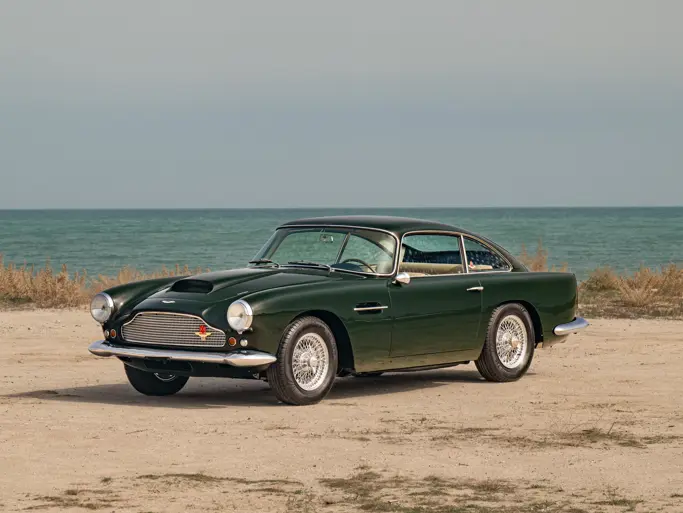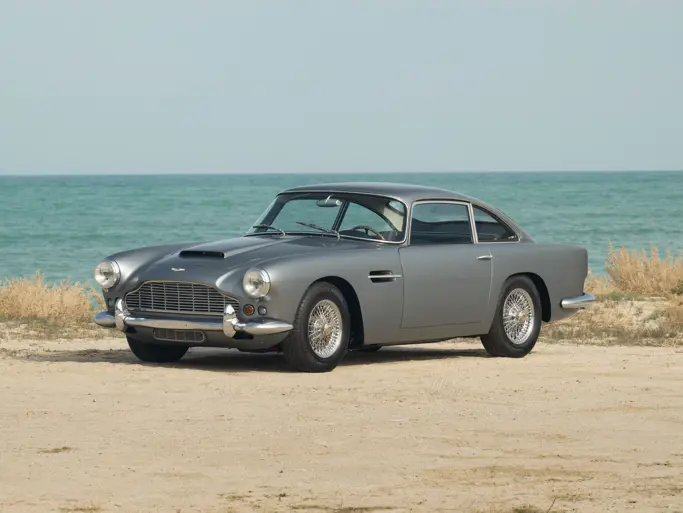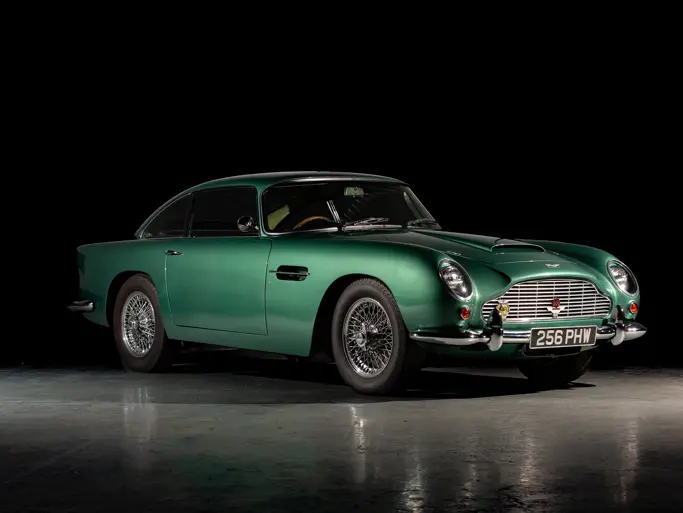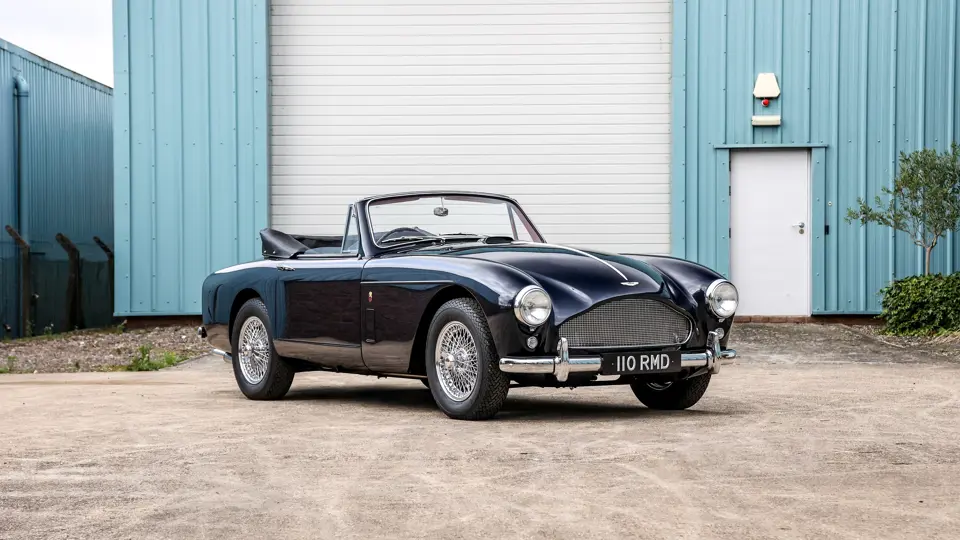
1958 Aston Martin DB Mark III Drophead Coupé by Tickford
{{lr.item.text}}
£297,500 GBP | Sold
{{bidding.lot.reserveStatusFormatted}}
- One of just 84 Aston Martin DB Mark III Drophead Coupés produced
- Powered by a revised 2.9-litre inline-six coupled to a four-speed manual gearbox
- Fully restored by Aston Martin Works
- Factory features included a Laycock overdrive unit, chrome wing mirrors (since removed), and a transistor radio, while it now also features a dual-exhaust system
- Delivered new to David Brown, English industrialist and then owner of Aston Martin; later owned and driven by Lady Brown, the company owner’s wife
- Offered after years of ownership from a private collection
Naturally the successor to the DB2/4 Mark II, the DB2/4 Mark III, or simply DB Mark III as it was referred to even in period, was launched in 1957 and remained in production for a relatively short time period of just two years until 1959. Building on the international rally success and remarkable ownership roster of the Mark II, which included kings of Belgium and Jordan, and world-famous speed record holder Donald Campbell, the Mark III boasted the DB2’s Lagonda inline-six, revised and enlarged by renowned Polish-born Aston Martin engineer Tadek Marek to produce 162 brake horsepower as standard, or 180 brake horsepower with the optional twin exhaust system—a notable increase from around 140 brake horsepower in the earlier Mark II cars.
Aping the DB3S sports race car, and penned by Bert Thickpenny, the attractive new front aperture would create the basis of Aston Martin’s ongoing design language, which still endures into the modern era. Options available on the Mark III included Girling disc brakes, a Laycock-de Normanville overdrive, and an automatic transmission. Worm-and-sector steering and a live rear axle were standard, and the engine came equipped with twin SU carburettors for the majority of applications, with a rare triple-SU setup available, as well as a triple-Weber arrangement with other mechanical changes producing up to 195 brake horsepower.
Establishing the marque’s now intrinsic link with Ian Fleming’s character James Bond, the Aston Martin DB Mark III made an appearance in the novel Goldfinger. Though for the film version it was substituted for the then current DB5. Just 551 DB Mark IIIs were made, of which just a small proportion were Drophead Coupés. The achingly pretty Drophead Coupé was coachbuilt by Aston Martin’s Newport Pagnell coachbuilder Tickford, and presented a particularly adept conversion of the already attractive hatchback DB Mark III.
This Mark III was first delivered in March of 1958 in the attractive factory hue of Pacific Blue over a Red Connolly Brothers leather-trimmed interior, the specification in which it remains today, still decorated by its original registration “110 RMD”. The car is accompanied by its original specification sheet which confirms that this DB Mark III was initially owned by English businessman, industrialist and then owner of Aston Martin, David Brown, after whom the entire range of DB cars were, and still are, named. The model was principally owned and driven by Lady Brown, the wife of the company owner.
Generously equipped from the factory, this example featured “non-standard equipment” which included the Laycock-de Normanville overdrive, chromed wing mirrors (which have since been removed), and a transistor radio, while it was later fitted with the desirable dual exhaust system—a feature that increased the car’s power by around 18 brake horsepower. Other features on this example included token rear seats, a three-spoke steering wheel, a Smiths speedometer and dials, twin SU carburettors, chromed wire wheels with two-eared knock-offs, and standard fitment Armstrong shock absorbers.
The car surfaced after 30 years in 2010 when it was sold as a “rolling restoration project” having been stored on a trailer, under a tarpaulin and not driven. Since restored by Aston Martin Works, it is now offered from storage after most recently belonging to a UK-based, Middle Eastern-owned private collection of vehicles. Given the car’s early provenance, its apparent condition, and its rarity, this attractive example will surely be of interest to many marque collectors.
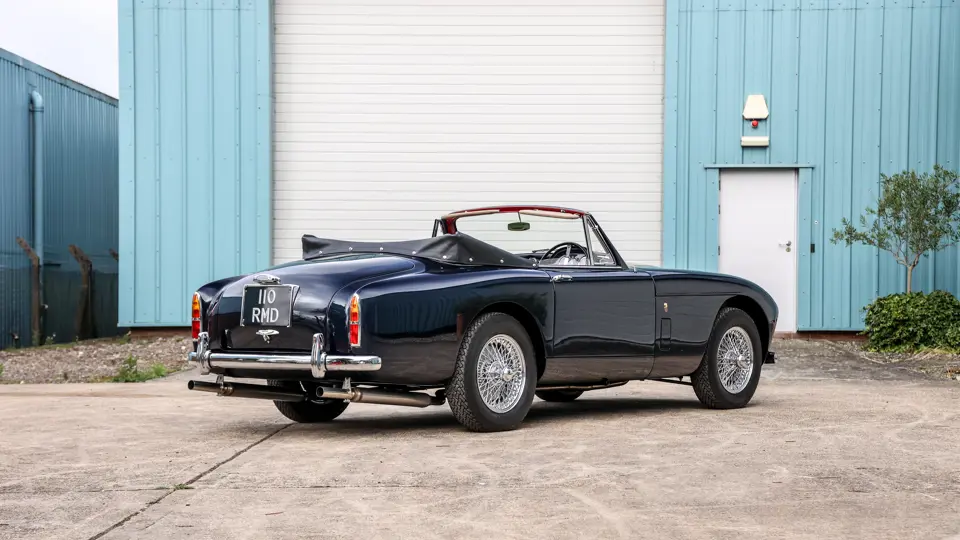



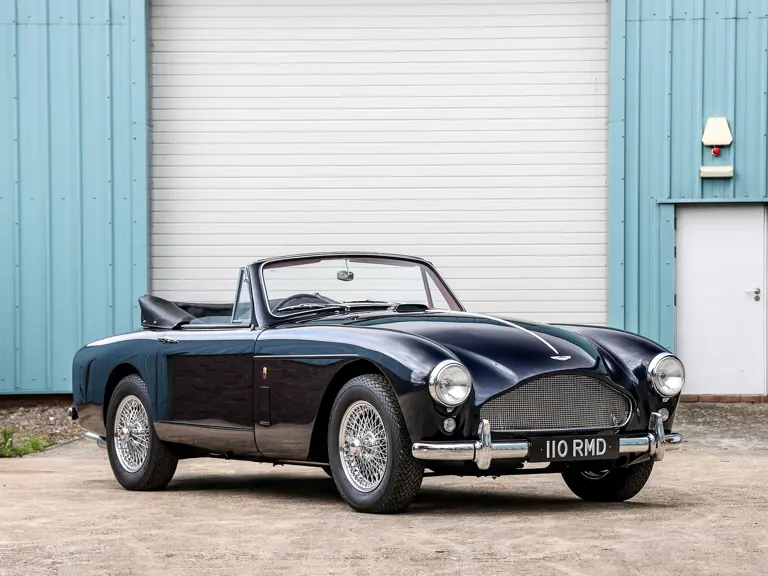
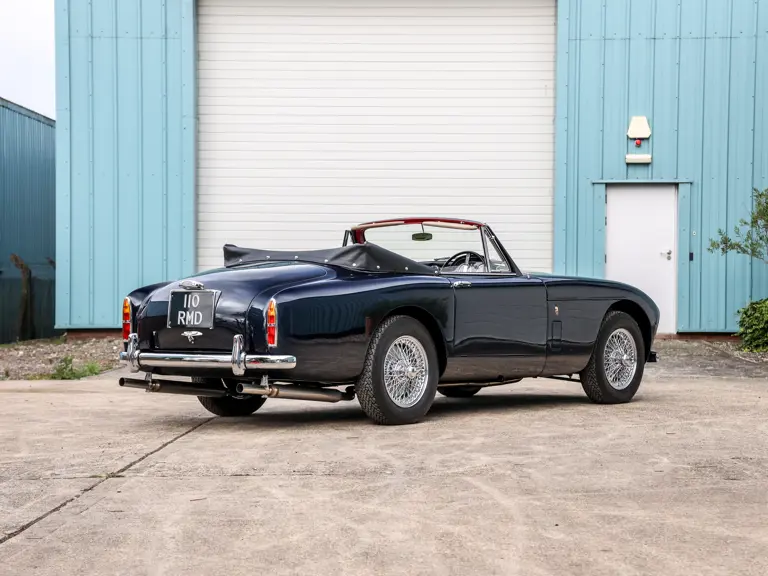
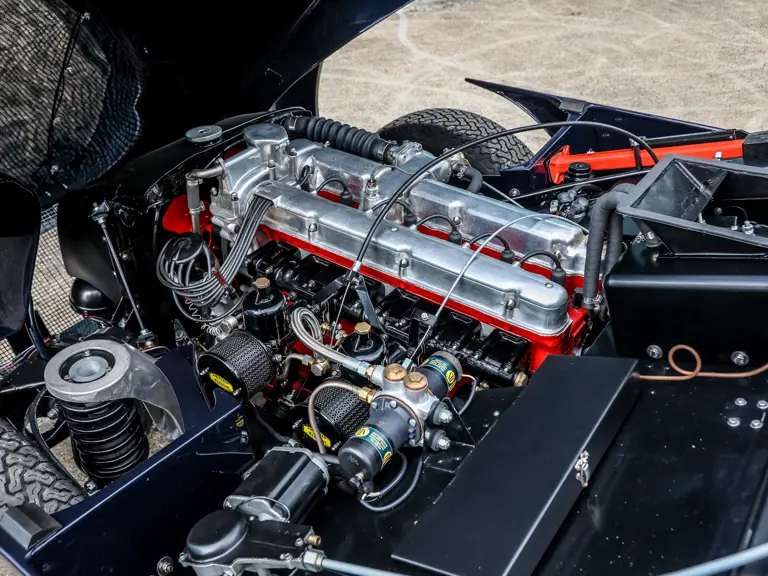
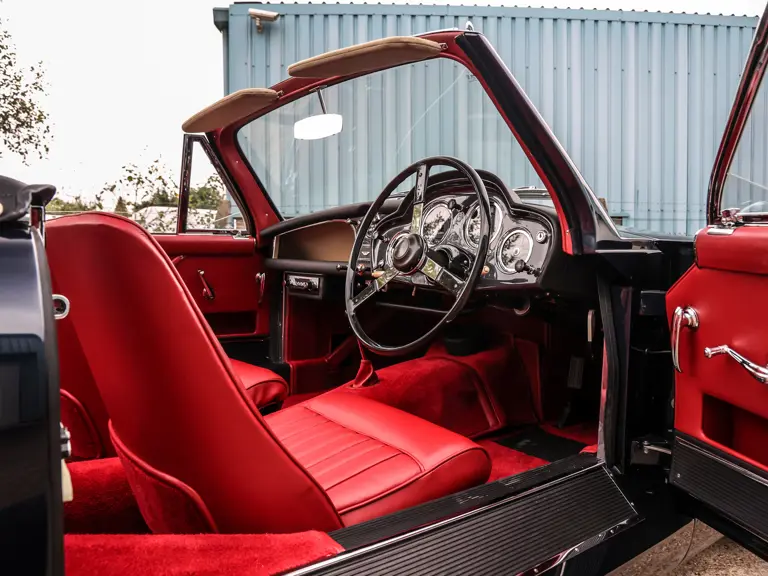
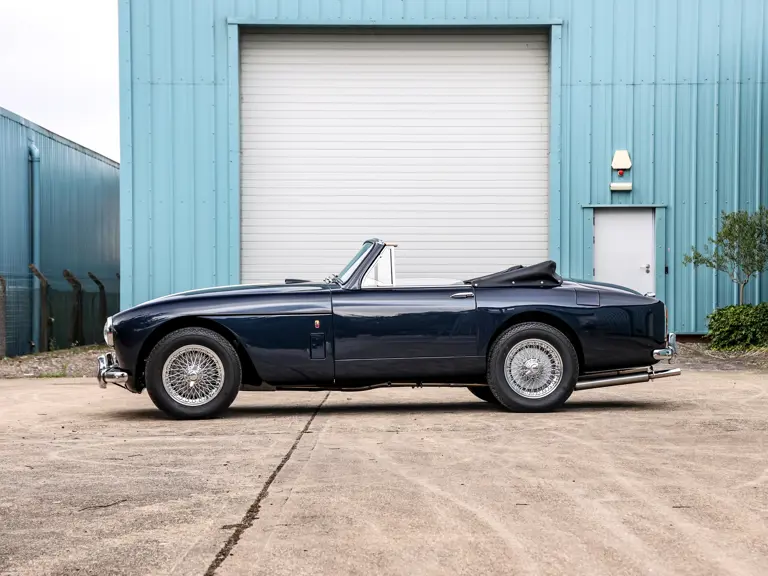
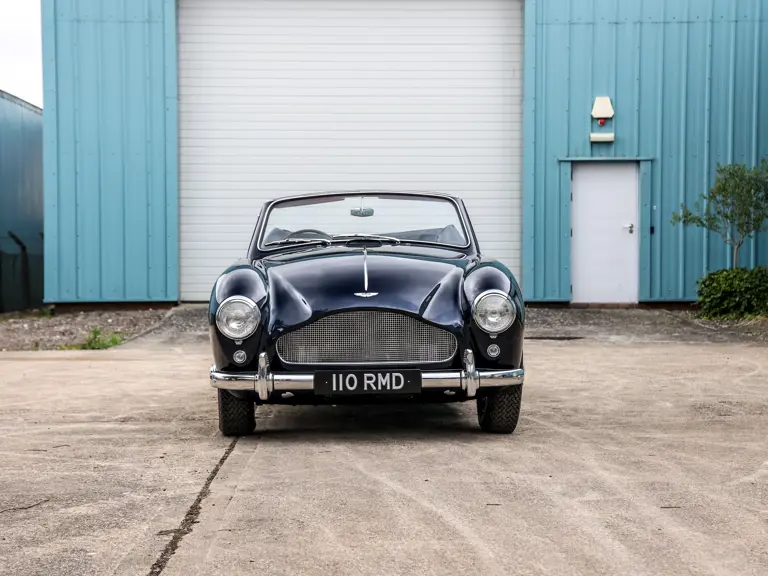
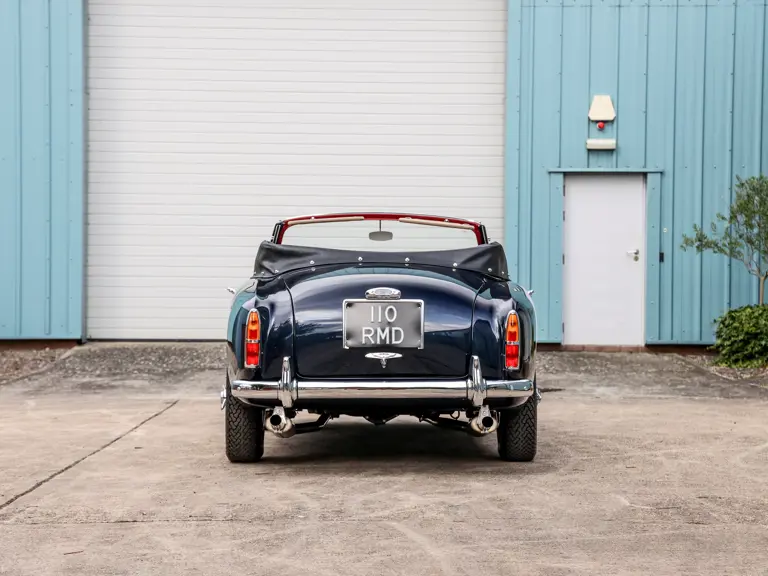
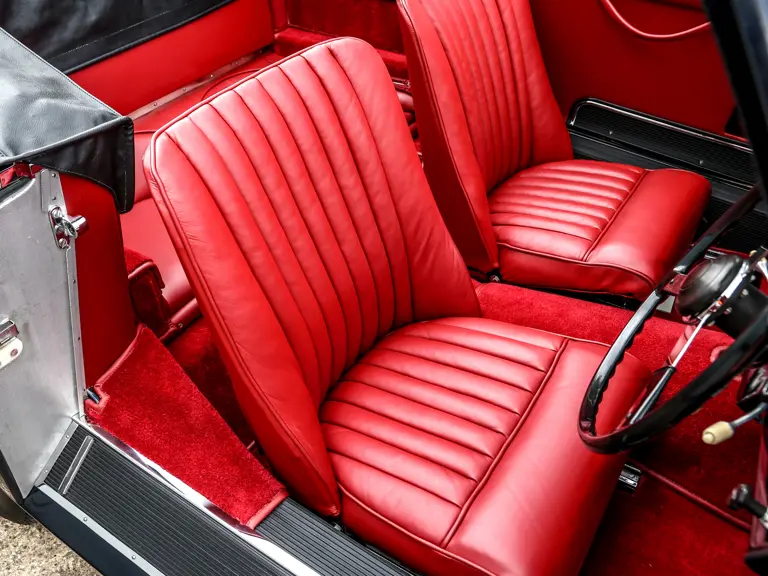
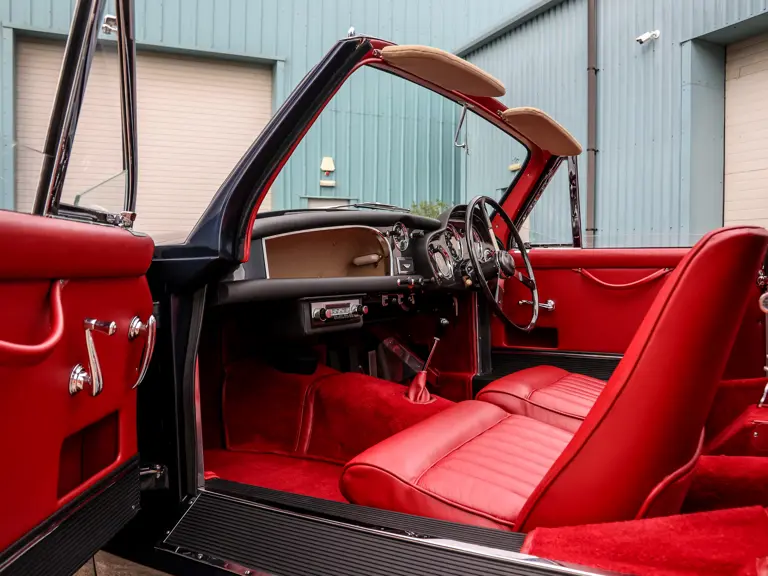
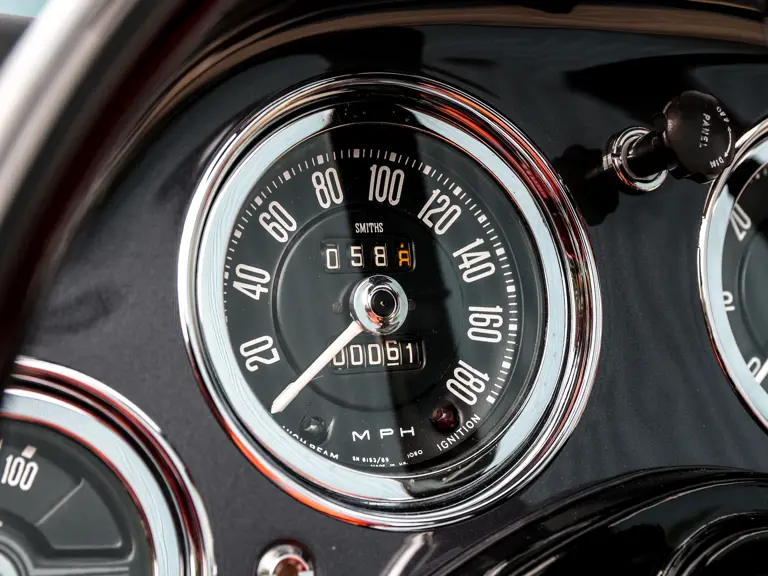
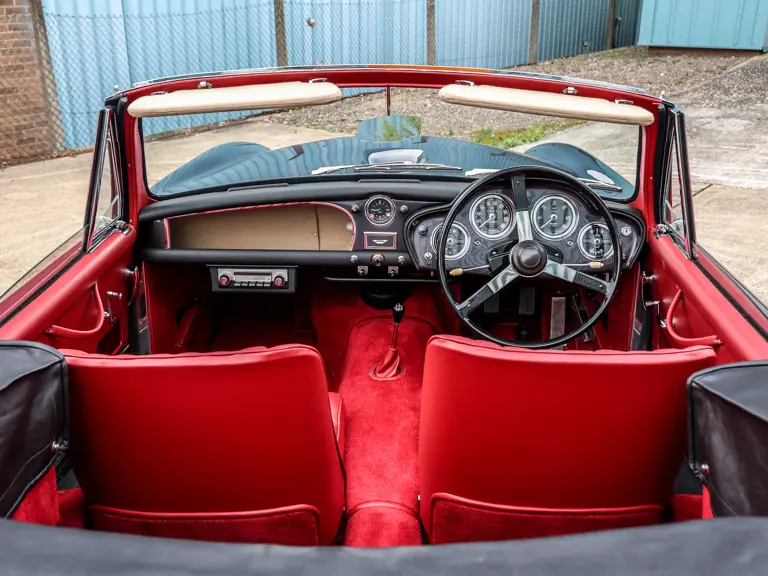
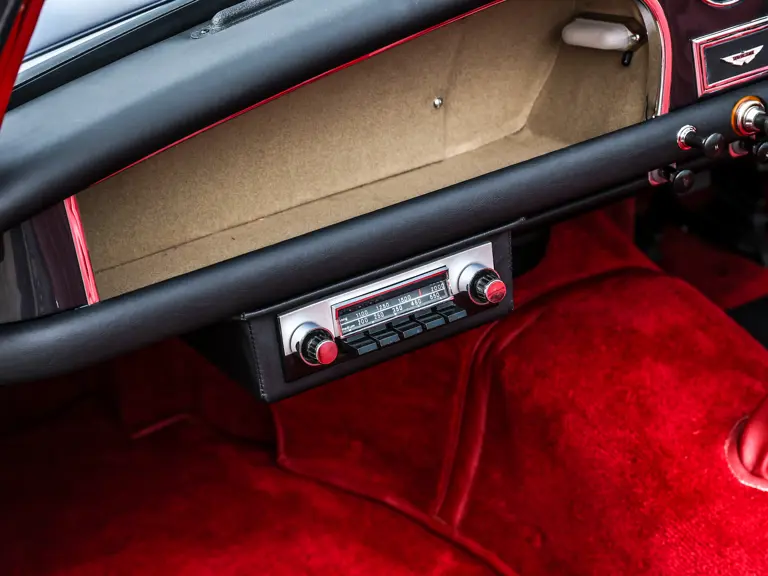
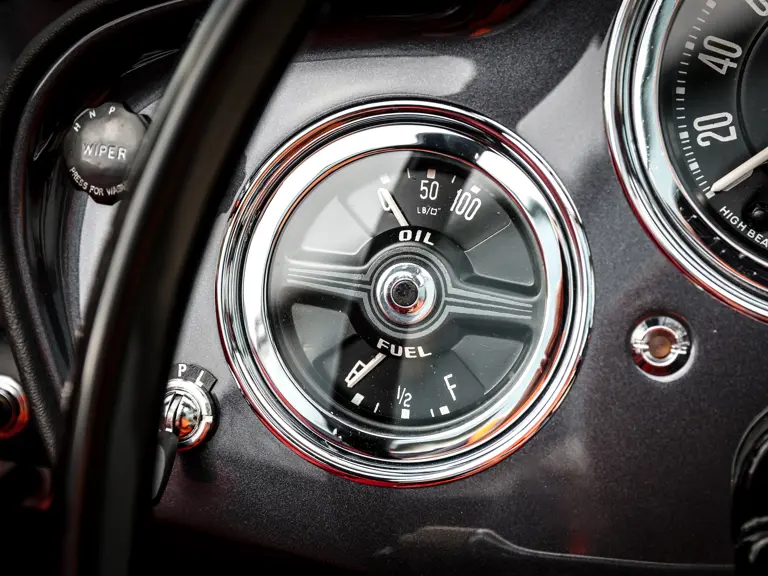
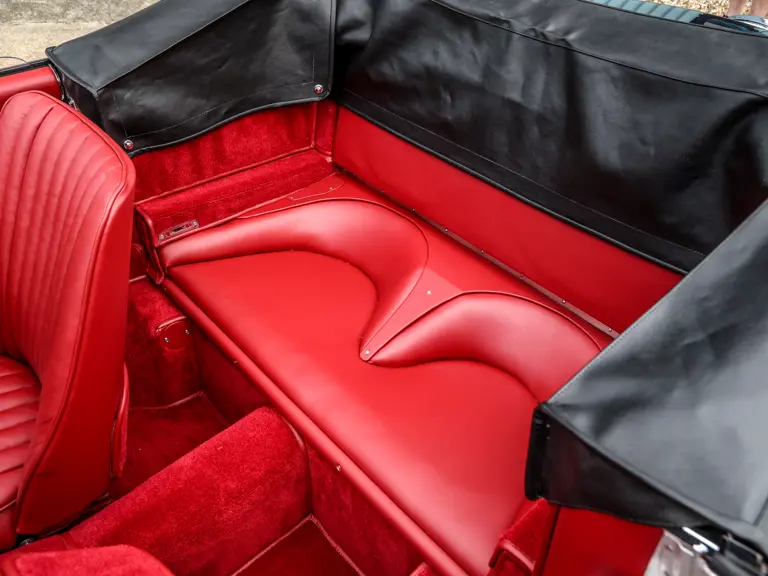
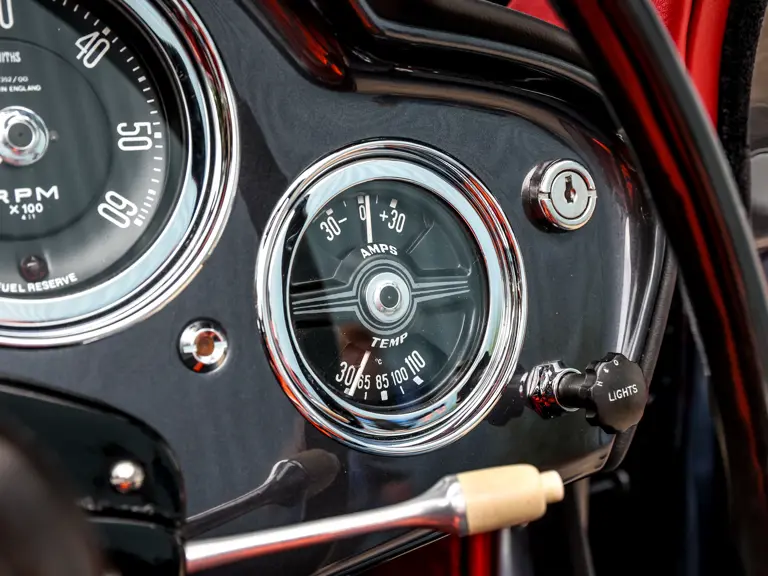
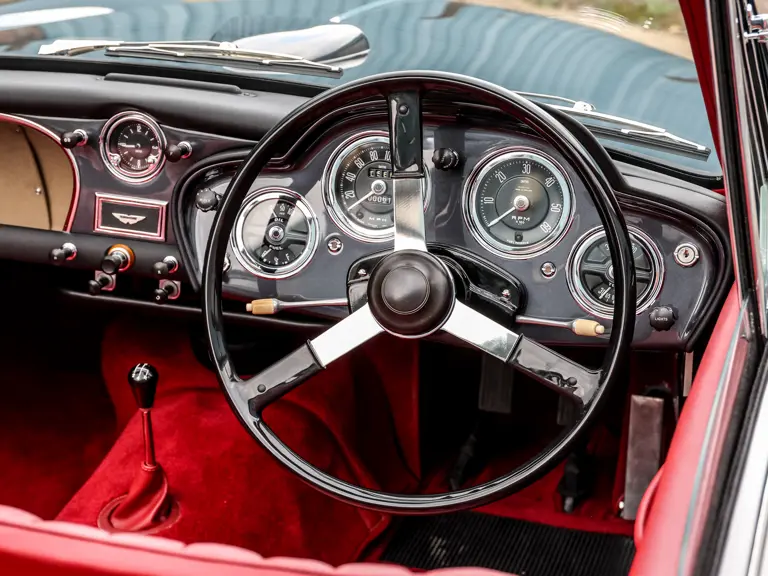
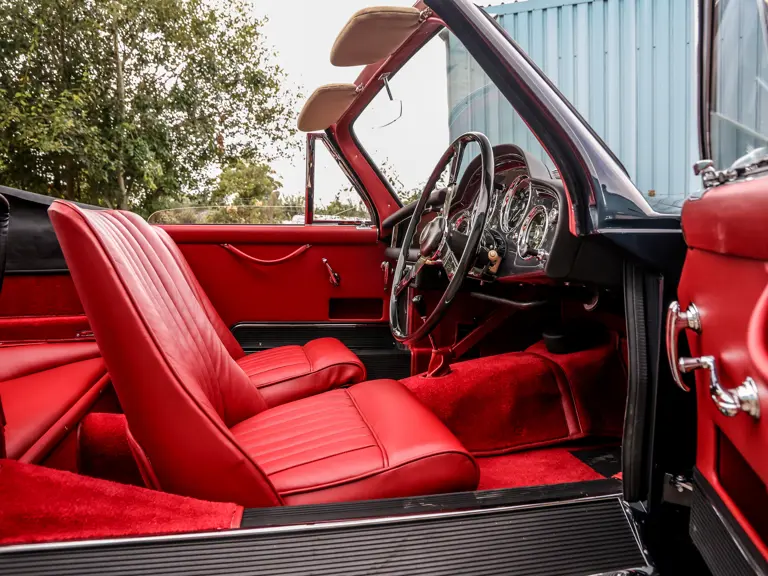
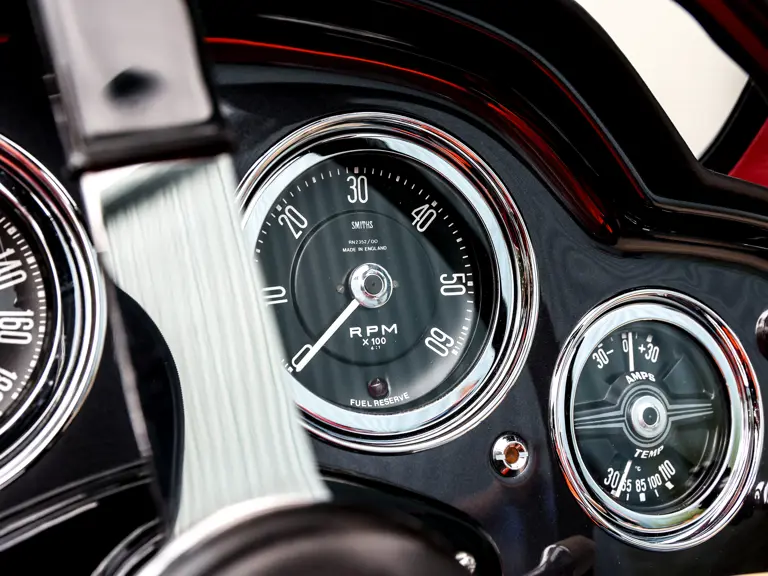
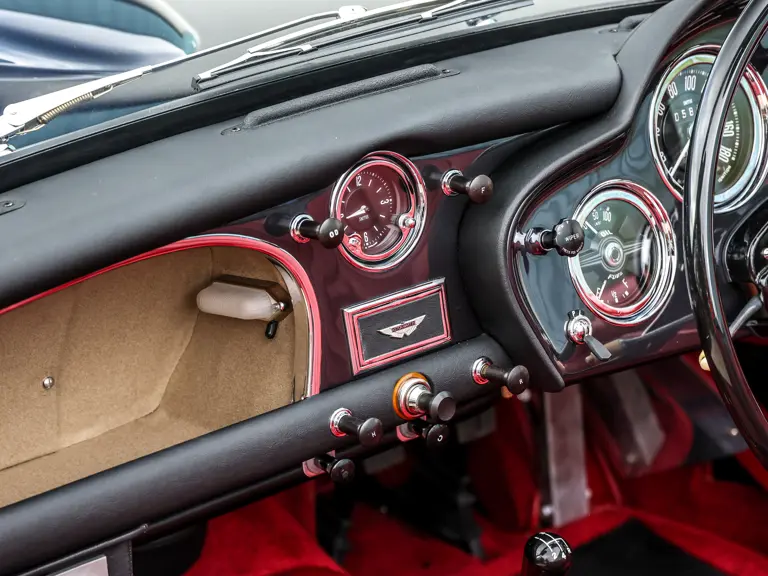
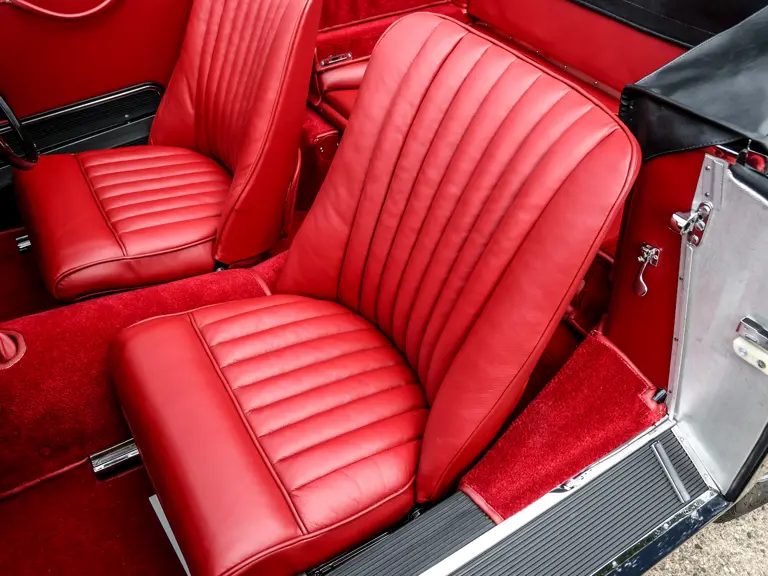
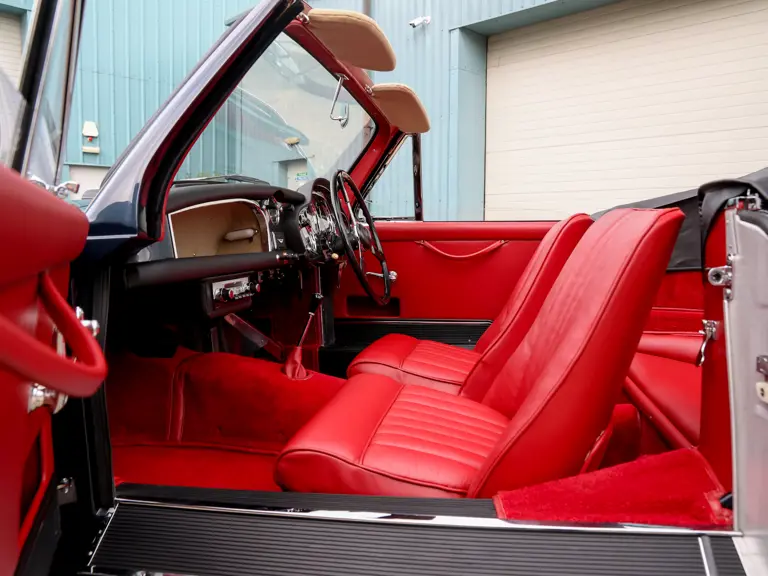
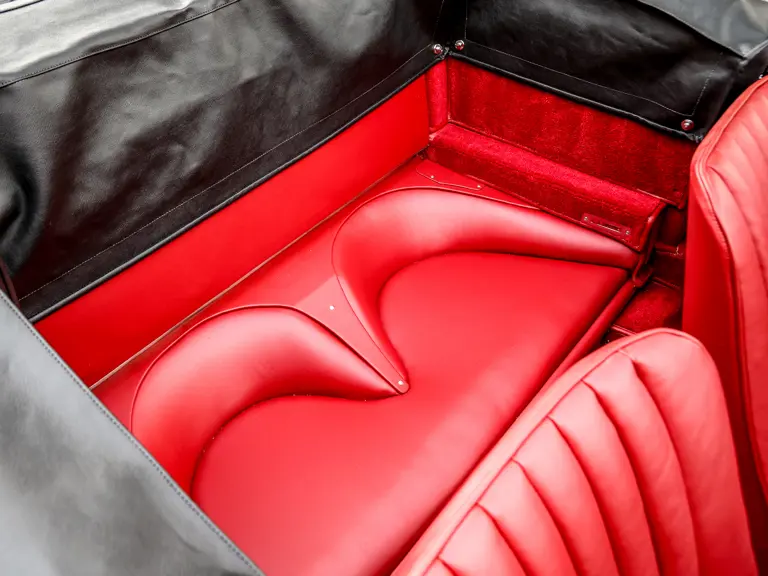
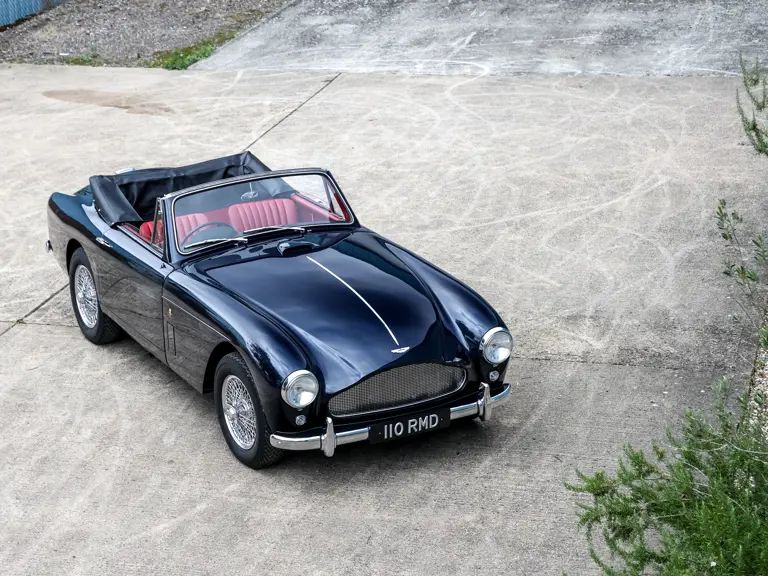
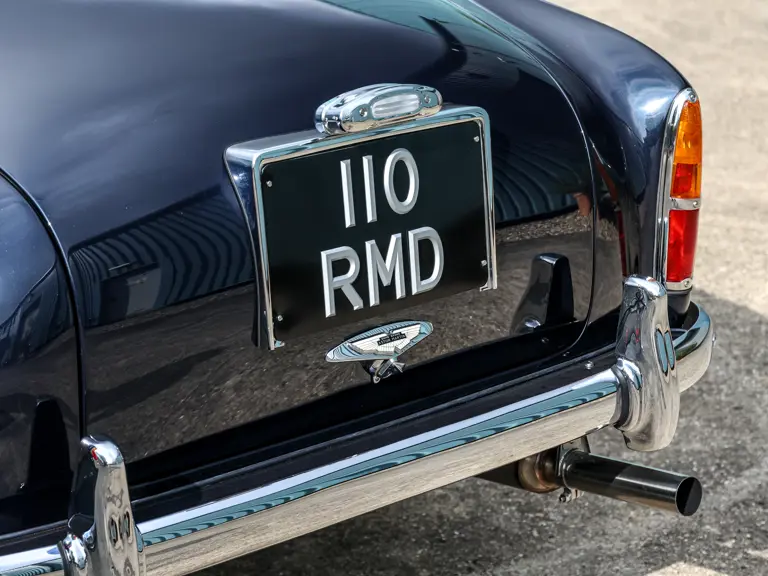
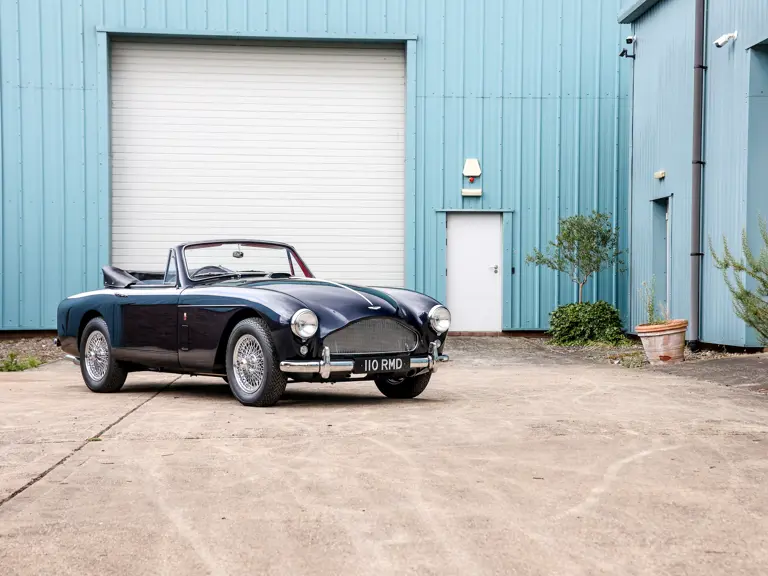
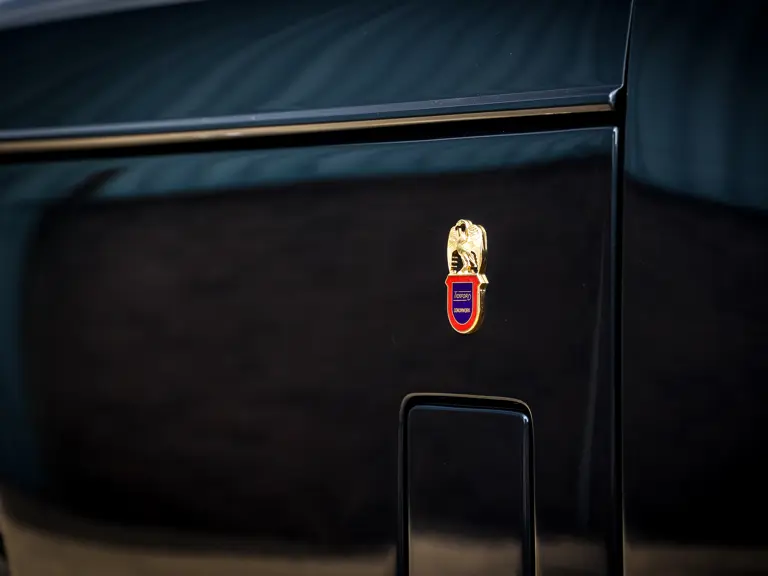
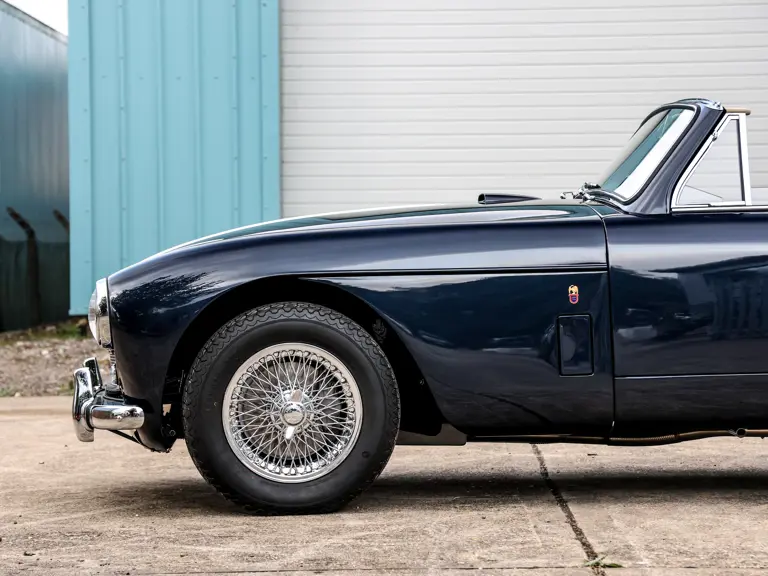
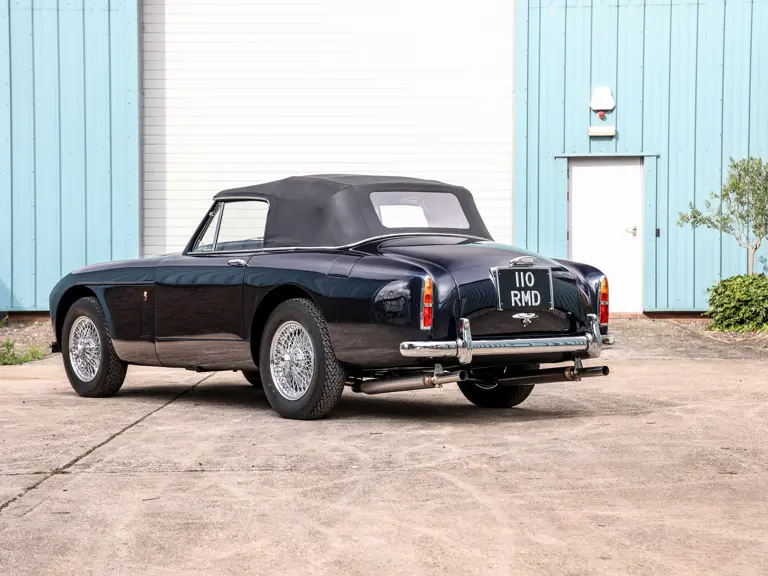
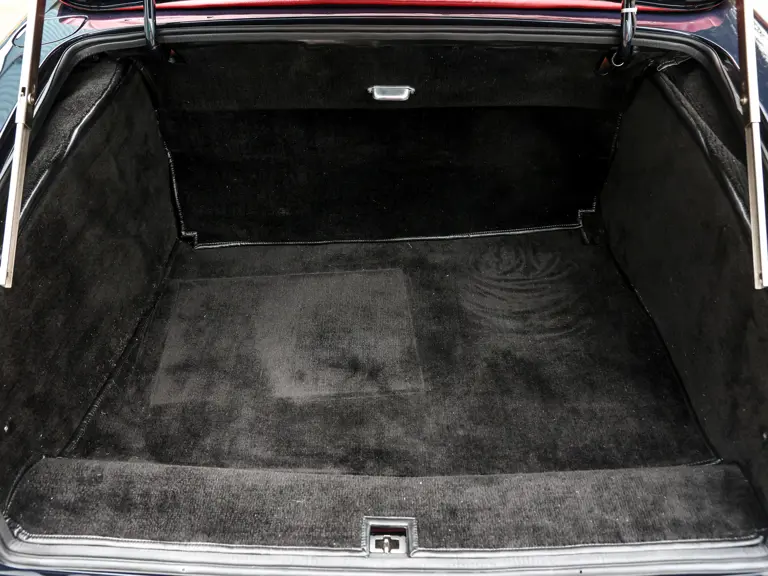
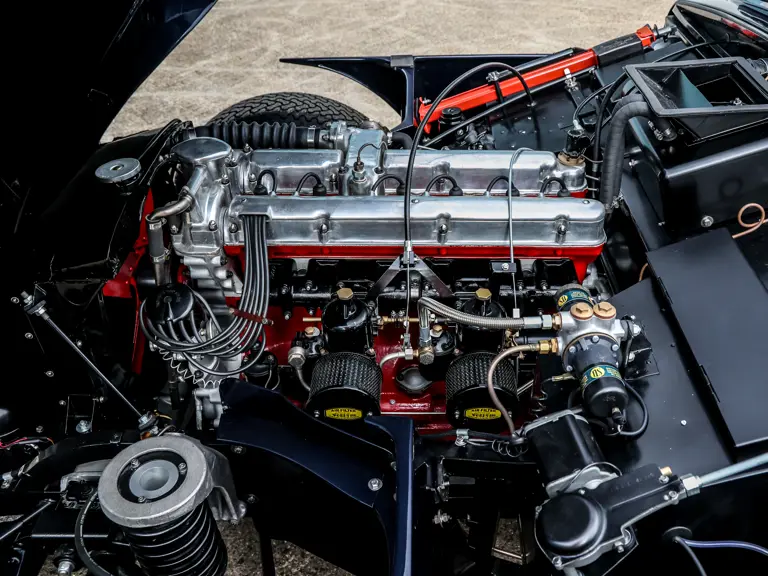
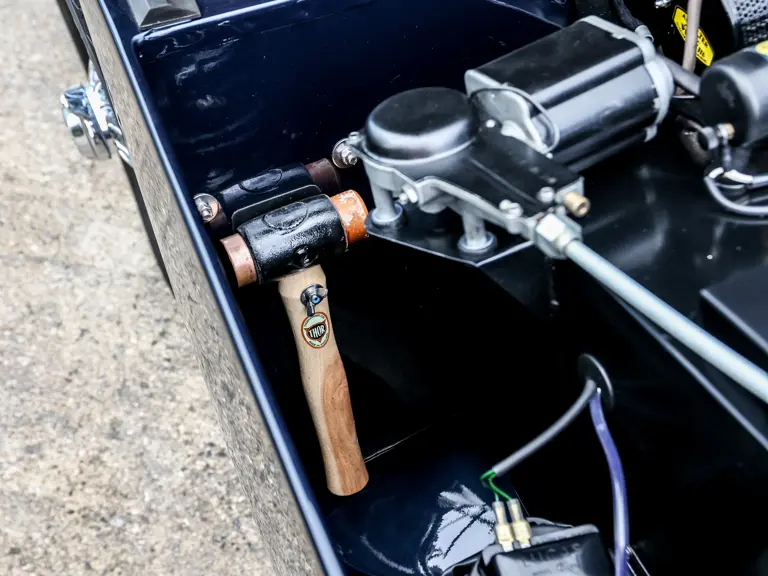
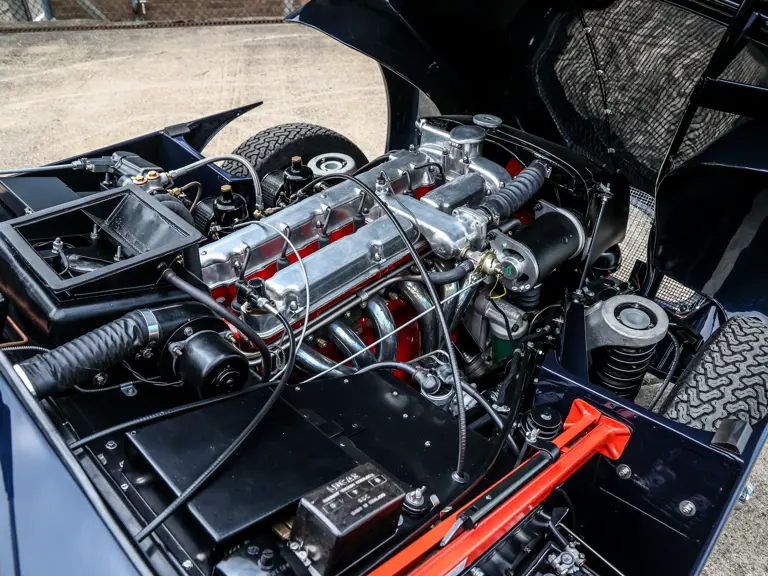
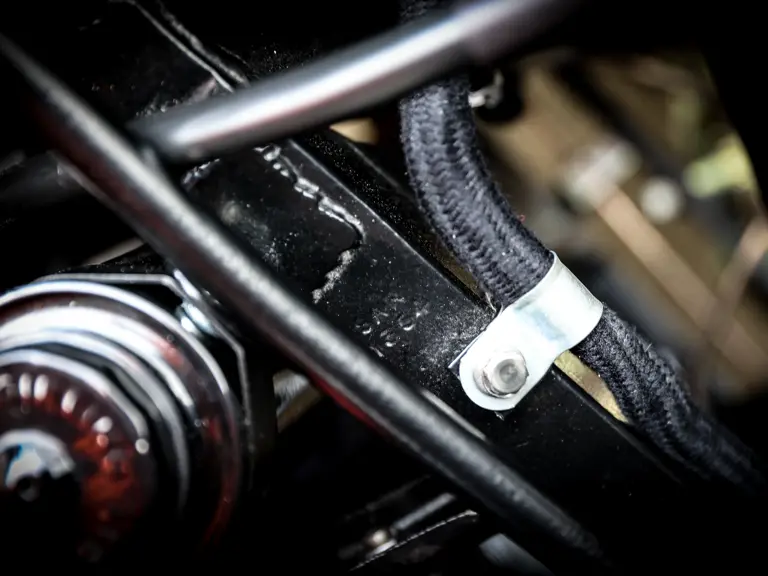
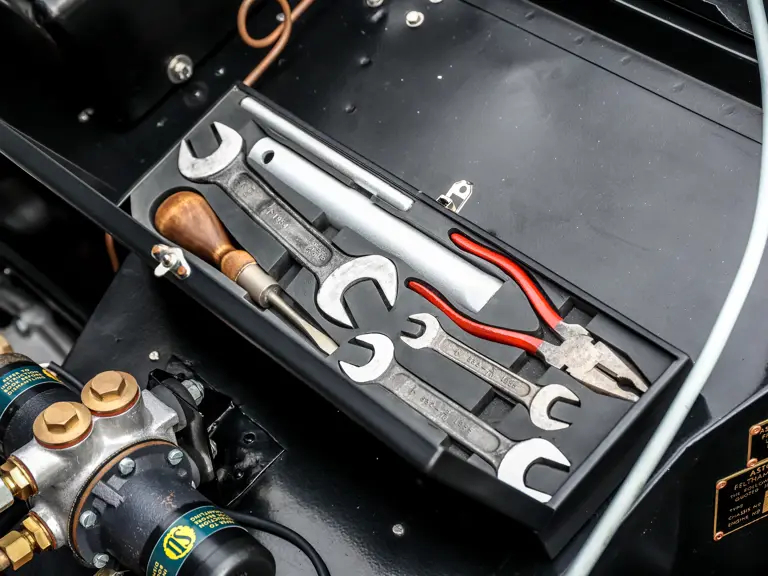
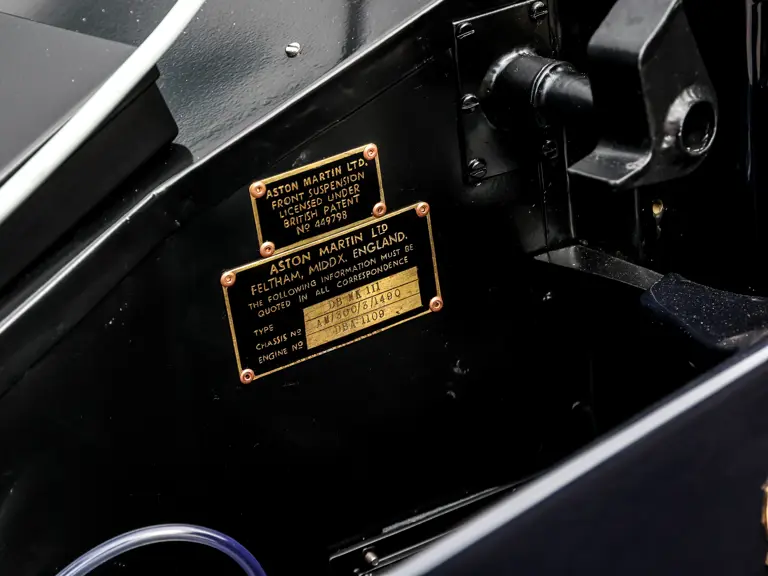
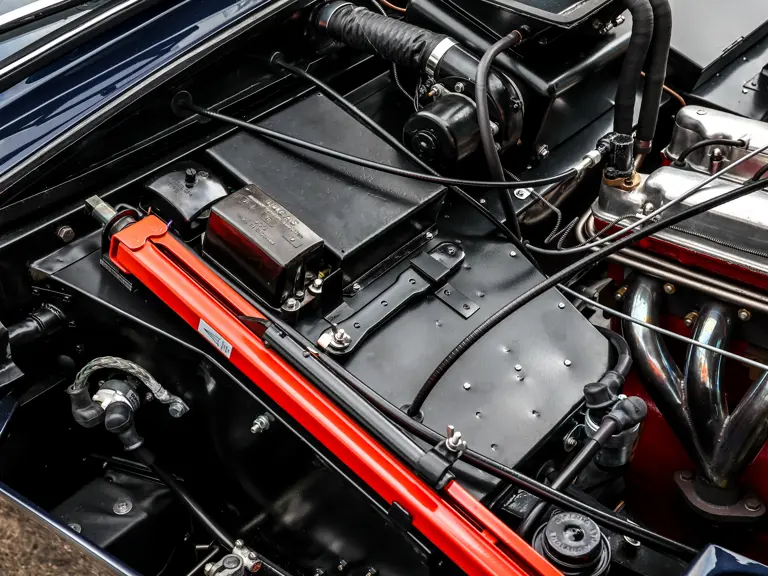
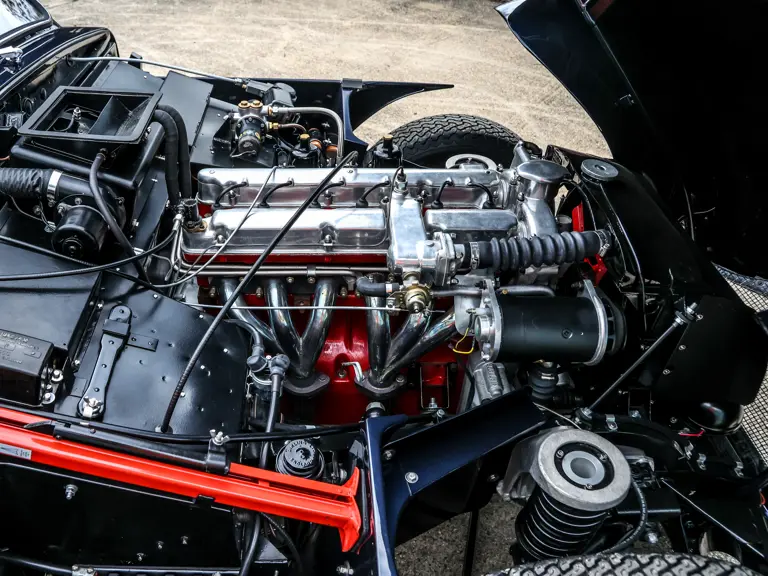
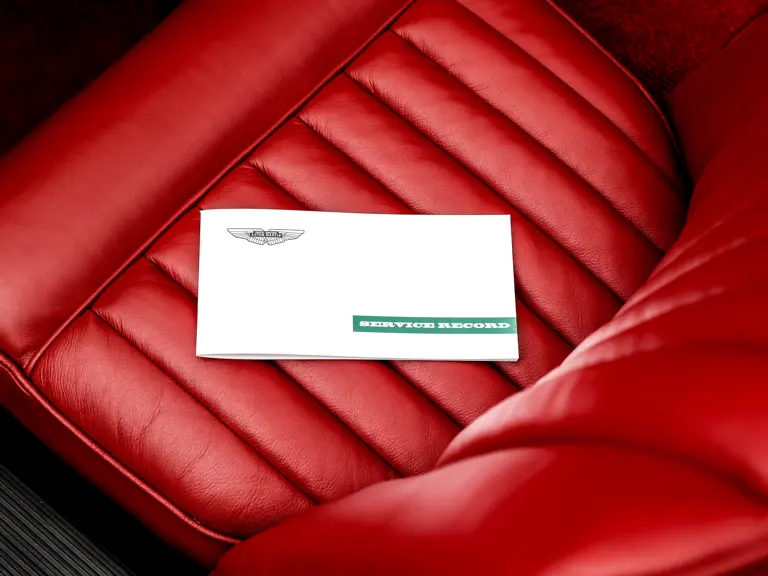
 | London, United Kingdom
| London, United Kingdom
